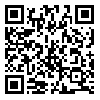Thu, Jan 29, 2026
[Archive]
Volume 34, Issue 1 (2-2020)
Med J Islam Repub Iran 2020 |
Back to browse issues page
Download citation:
BibTeX | RIS | EndNote | Medlars | ProCite | Reference Manager | RefWorks
Send citation to:



BibTeX | RIS | EndNote | Medlars | ProCite | Reference Manager | RefWorks
Send citation to:
Gharavi M, Esmaeili M. Evaluation of HBs-Ag and anti-HBc levels in serum and saliva of patients with hepatitis B. Med J Islam Repub Iran 2020; 34 (1) :709-711
URL: http://mjiri.iums.ac.ir/article-1-5808-en.html
URL: http://mjiri.iums.ac.ir/article-1-5808-en.html
Department of Oral Medicine, Faculty of Dentistry, Shahed University, Tehran, Iran , lvlatine@gmail.com
Abstract: (2325 Views)
Background: Hepatitis B is a common infectious disease with serious complications. Health care workers (HCWs) are among the susceptible groups for Hepatitis B Virus (HBV) infection. Hepatitis B Virus is usually diagnosed through serological tests, which are invasive and expensive. Having in mind that saliva can be seen in many cases as an indicator of serological changes, in this study we aimed to assess the specificity and sensitivity of salivary HBs-Ag and anti-HBc, as the 2 diagnostic markers of HBV infection, compared to serological results of these markers.
Methods: Samples were obtained from 39 individuals diagnosed with hepatitis B and 20 healthy individuals. In this study serum HBs-Ag and anti-HBc of all the patients were evaluated by their physicians in the previous week. Unstimulated whole saliva was collected and sent to laboratory for evaluating salivary HBs-Ag and anti-HBc. Specificity and sensitivity were evaluated through data analysis by SPSS software.
Results: Serum was considered as a reference test and saliva as an index test. Sensitivity and specificity for oral fluid assay were measured: Sensitivity and specificity of salivary HBs-Ag were 86% and 95%, respectively, and they were 71% and 95%, respectively, for anti-HBc.
Conclusion: Our results suggest that salivary tests of HBs-Ag and anti-HBc marker could have the potential to replace serological tests for these markers.
Methods: Samples were obtained from 39 individuals diagnosed with hepatitis B and 20 healthy individuals. In this study serum HBs-Ag and anti-HBc of all the patients were evaluated by their physicians in the previous week. Unstimulated whole saliva was collected and sent to laboratory for evaluating salivary HBs-Ag and anti-HBc. Specificity and sensitivity were evaluated through data analysis by SPSS software.
Results: Serum was considered as a reference test and saliva as an index test. Sensitivity and specificity for oral fluid assay were measured: Sensitivity and specificity of salivary HBs-Ag were 86% and 95%, respectively, and they were 71% and 95%, respectively, for anti-HBc.
Conclusion: Our results suggest that salivary tests of HBs-Ag and anti-HBc marker could have the potential to replace serological tests for these markers.
Type of Study: Original Research: Clinical Science |
Subject:
Gastroenterology and Liver Disease
Send email to the article author
| Rights and permissions | |
 |
This work is licensed under a Creative Commons Attribution-NonCommercial 4.0 International License. |








